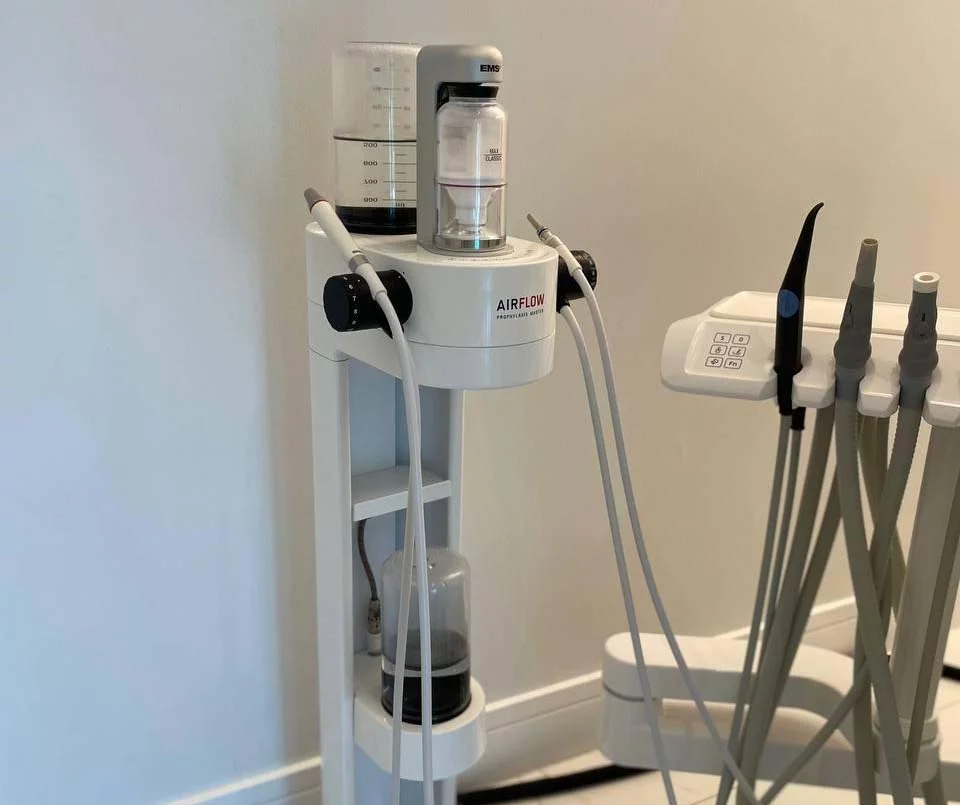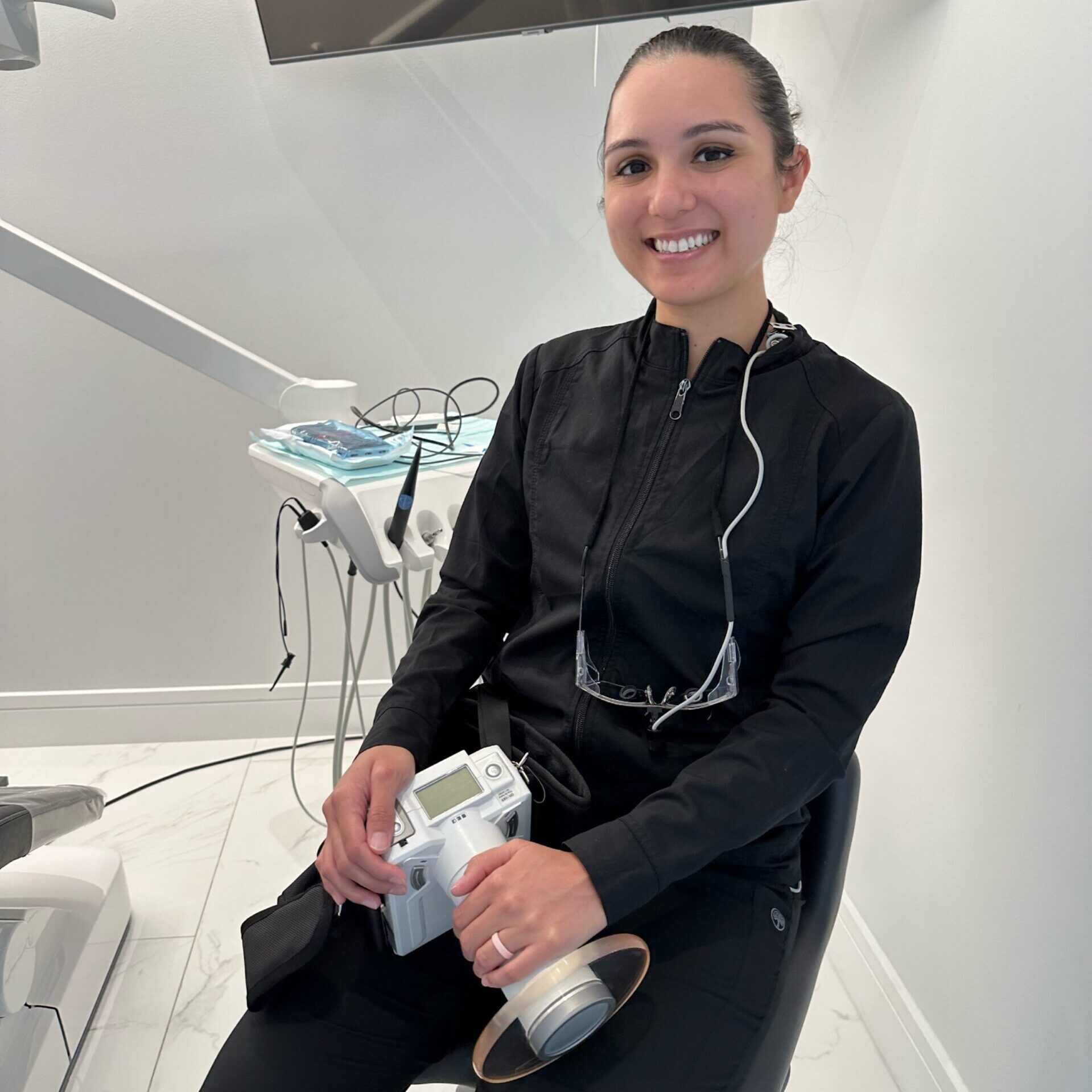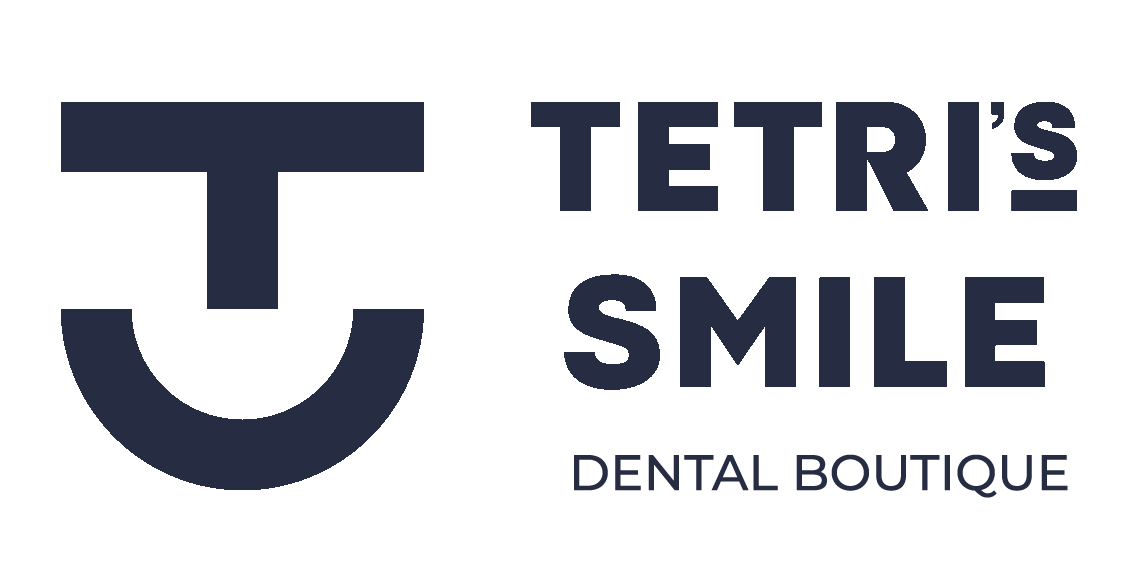Airflow
Tetri’s Smile purchased modern, high-precision equipment and invited hygienist Natalia, who has over ten years of experience with this technology.
We have made every effort to make our patients feel comfortable and receive premium service.

What is Airflow?
Airflow is a popular system for cleaning teeth comfortably.
It uses a pressurized mixture of water, air, and fine powder to comfortably and efficiently remove bacterial communities, stains, and calculus from the teeth and gums.
Airflow is a NO PAIN SYSTEM that uses temperature-controlled water and pressure sensors to adapt to the presence of bacterial tartar.

Airflow is most often used together with ultrasonic teeth cleaning. It is rarely used as a standalone procedure when a patient has good oral hygiene and no hard mineralized deposits.
How much does Airflow cost?
Pros and cons
PROS:
It helps to achieve a more pleasant cleaning experience because fewer hand tools are used during the procedure.
The procedure is safe and painless for patients with sensitive gums and teeth – thanks to fine abrasive powder and water jet.
It is perfect for cleaning plaque in hard-to-reach places (e.g., interdental space).
The procedure takes good care of the enamel and does not damage it.
It removes stains 3 times faster than normal cleaning.
CONS:
The procedure is ineffective if calculus has formed on the enamel.
For this purpose, our office carries modern equipment, which allows us to perform professional teeth cleaning almost painlessly.
Clean your teeth and gums with a mixture of water, air, and sodium bicarbonate. Even the most stubborn plaque will be removed within 30–40 minutes.

Indications and contraindications
Stains caused by smoking, coffee, or other staining products
Yellowed enamel
Placement of braces, implants, or whitening (performed in the preparatory stage)
Cleaning of crown surfaces, braces, and other orthodontic structures
Bleeding or inflammation of gums
Hard calculus
Bronchial asthma (rarely used)
How is it done?
1. During the initial examination, the doctor evaluates the condition of the oral cavity and discovers / excludes contraindications to the procedure.
2. A substance reacting to the presence of a biofilm or fine calculus is applied to the surface of the teeth – it shows where the bacteria is and how long it has been on the teeth. After that, the type of powder and cleaning technology is selected.
3. Then we begin cleaning with the Airflow device. For this purpose, the patient’s mouth is fixed with a retractor and the face is covered with a silicone screen.
4. After removing the biofilm, if necessary, the doctor can remove hard deposits with an ultrasonic scaler.
5. Then, remineralization of the teeth is performed. The enamel is saturated with calcium-containing elements to consolidate the result and reduce sensitivity.
6. Then polishing of the enamel is performed.
FAQ
No, it doesn’t. The procedure is painless and does not require anesthesia. If the patient is worried about discomfort, the doctor can treat the teeth with a local anesthetic in the form of a spray.
Only by 1–2 tones. It removes yellowish plaque and pigment spots. A professional teeth whitening is required for a stronger effect.
Our standard recommendation is every 6 months.

